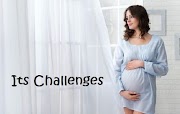infertility affects a minimum of twelve persent of all ladies up to the age of forty four, and studies counsel Black ladies could also be virtually double as probably to expertise sterility as white ladies.
Yet solely regarding 8 % of Black ladies between the ages of twenty-five and forty-four ask for medical facilities to urge pregnant, compared to fifteen percent of white ladies.
To better perceive what’s driving the inequality between the quantity of Black ladies affected by sterility and people following treatment, WomensHealthMag.com and OprahMag.com teamed up with the Black Women’s Health Imperative and Celmatix, a startup transportation personalised drugs to women's generative health and fertility, to survey over 1,000 ladies of multiple races regarding their fertility.
One issue was apparent: Socioeconomic factors are clearly at play. In our survey, ladies of a range of ethnic identities cited price because the biggest obstacle that will forestall them from seeking treatment.
But conjointly enlightening—and alarming: Black ladies were over double as probably as white ladies to mention that they wouldn’t feel snug talking regarding their fertility problems with friends, family, a partner, their doctor, or perhaps a support cluster.
We spoke with fertility doctors, mental-health specialists, and Black ladies World Health Organization have undergone physiological state treatments to additional explore each the general and also the deeply planted cultural factors that will be stopping them from ask forming treatment—and impacting their experiences after they do seek treatment. These square measure a number of our findings.
Black ladies have comprehendible hesitations regarding discussing physiological state problems with their doctors.
In our survey, Black ladies were over fifty percent a lot of probably than white ladies to mention they felt uncomfortable reproval their doctors regarding fertility.
"Within the Black community specifically, there's still a mistrust of the medical system," says Desireé McCarthy-Keith, M.D., M.P.H., a generative medical specialist at Shady Grove Fertility in Atlanta, Georgia. She cites incidents just like the notorious Tuskegee Study, within which researchers underprivileged Black men with Venus's curse of the acceptable medical aid for years while not their information.
"People were simply used by the medical system and monitored while not treatment," she says. "So there are folks that square measure still terribly skeptical regarding it."
The stereotype that Black ladies do not have fertility problems is persistent—and harmful.
For her analysis, Ceballo interviewed ladies during a wide swath of professions: pH.D.s, medical doctors, college custodians, teacher’s assistants. most of them voiced a similar belief that Black ladies square measure extremely fertile. The sentiment was therefore universal, in spite of socioeconomic standing or education level, that Ceballo dubbed it the "Black-fertility mandate,” supported the thought that, for these ladies, the flexibility to become a mother was closely tied to their identity as Black ladies.
Because of these deeply planted beliefs, Rev. Stacey Edwards-Dunn says she grappled with feelings of inadequacy throughout her own fertility journey (she did seven IVF cycles before eventually obtaining pregnant along with her female offspring in 2014). “I did not suppose that Black individuals struggled with the physiological state, because, primarily based upon what i used to be light-emitting diode to believe, Black ladies and men are hyper-fertile, baby-making machines," she says.
Edwards-Dunn, currently a fertility coach and counselor, says several of the Black ladies who've opened to her regarding their sterility report having toughened similar emotions.
Yet solely regarding 8 % of Black ladies between the ages of twenty-five and forty-four ask for medical facilities to urge pregnant, compared to fifteen percent of white ladies.
To better perceive what’s driving the inequality between the quantity of Black ladies affected by sterility and people following treatment, WomensHealthMag.com and OprahMag.com teamed up with the Black Women’s Health Imperative and Celmatix, a startup transportation personalised drugs to women's generative health and fertility, to survey over 1,000 ladies of multiple races regarding their fertility.
One issue was apparent: Socioeconomic factors are clearly at play. In our survey, ladies of a range of ethnic identities cited price because the biggest obstacle that will forestall them from seeking treatment.
But conjointly enlightening—and alarming: Black ladies were over double as probably as white ladies to mention that they wouldn’t feel snug talking regarding their fertility problems with friends, family, a partner, their doctor, or perhaps a support cluster.
We spoke with fertility doctors, mental-health specialists, and Black ladies World Health Organization have undergone physiological state treatments to additional explore each the general and also the deeply planted cultural factors that will be stopping them from ask forming treatment—and impacting their experiences after they do seek treatment. These square measure a number of our findings.
Black ladies have comprehendible hesitations regarding discussing physiological state problems with their doctors.
In our survey, Black ladies were over fifty percent a lot of probably than white ladies to mention they felt uncomfortable reproval their doctors regarding fertility.
"Within the Black community specifically, there's still a mistrust of the medical system," says Desireé McCarthy-Keith, M.D., M.P.H., a generative medical specialist at Shady Grove Fertility in Atlanta, Georgia. She cites incidents just like the notorious Tuskegee Study, within which researchers underprivileged Black men with Venus's curse of the acceptable medical aid for years while not their information.
"People were simply used by the medical system and monitored while not treatment," she says. "So there are folks that square measure still terribly skeptical regarding it."
The stereotype that Black ladies do not have fertility problems is persistent—and harmful.
For her analysis, Ceballo interviewed ladies during a wide swath of professions: pH.D.s, medical doctors, college custodians, teacher’s assistants. most of them voiced a similar belief that Black ladies square measure extremely fertile. The sentiment was therefore universal, in spite of socioeconomic standing or education level, that Ceballo dubbed it the "Black-fertility mandate,” supported the thought that, for these ladies, the flexibility to become a mother was closely tied to their identity as Black ladies.
Because of these deeply planted beliefs, Rev. Stacey Edwards-Dunn says she grappled with feelings of inadequacy throughout her own fertility journey (she did seven IVF cycles before eventually obtaining pregnant along with her female offspring in 2014). “I did not suppose that Black individuals struggled with the physiological state, because, primarily based upon what i used to be light-emitting diode to believe, Black ladies and men are hyper-fertile, baby-making machines," she says.
Edwards-Dunn, currently a fertility coach and counselor, says several of the Black ladies who've opened to her regarding their sterility report having toughened similar emotions.








.png)






0 Comments
thanks for connecting me, I will back to you as soon as possible